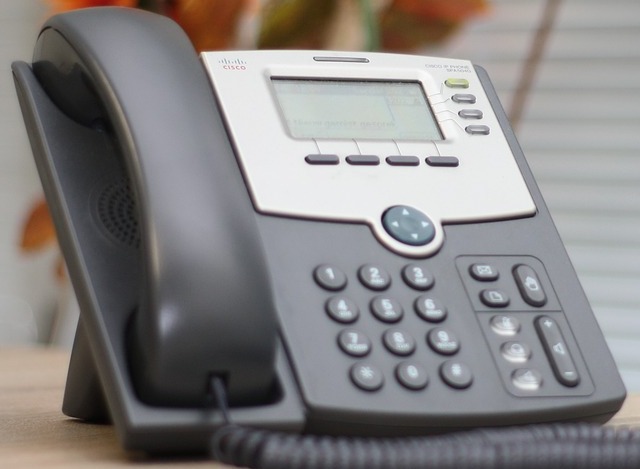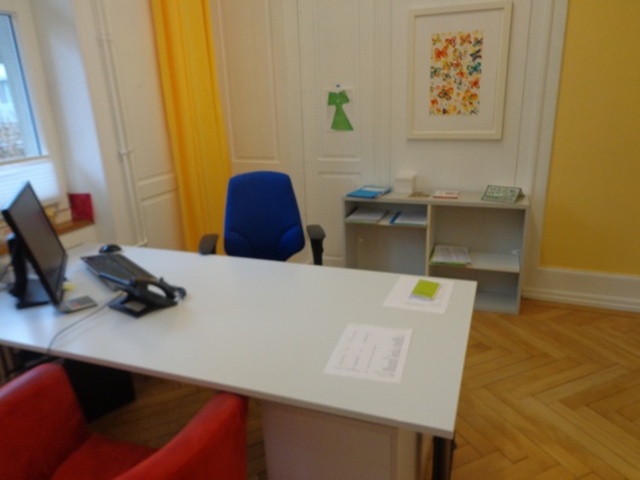DOMESTIC VIOLENCE IS PROHIBITED
Domestic violence is punishable by law.
This means:
The perpetrators are punished.
The perpetrators are mostly the husbands or partners of the victims.
The victims are mostly women and their children.
Have you experienced or seen domestic violence?
Then report it to the police.
The police will help you.
Want to know more about domestic violence?
Learn here:
What is domestic violence?
Domestic violence is violence between 2 or more people.
Domestic violence occurs at home:
In the family and between life partners.
For example, domestic violence is experienced by:
- Married couples
- Civil partners
- Children
- Parents
- Grandparents
Domestic violence also exists among separated couples.
Domestic violence is not only physical.
Threats can also be domestic violence.
For example, when a husband tells his wife:
"I'm going to take the children away forever."
What are the types of domestic violence?
There are different types of domestic violence.
The perpetrator:
- slaps you in the face
- hits you in the back
- kicks you with his feet
- grabs you with both hands
- chokes you by the neck
- throws a plate at you
The perpetrator:
- forbids contact with your parents, friends and neighbours
- says: “You can’t go to the fitness studio.”
- wants you to stay home all the time
The perpetrator:
- insults you: “You’re worthless.”
- demeans you: “You’re too dumb to work.”
- threatens you: “I’m going to take the kids away from you.”
- yells at you
- accuses you of something for no reason
The victim:
- must surrender all earnings to her husband
- gets no money of her own
- isn’t allowed to buy anything
- isn’t allowed to work
- has to work but doesn’t want to
The victim is forced to:
- marry
- live in marriage
- live in a registered partnership
The victim:
- must perform sexual acts that she doesn’t want to
- is kissed or touched against her will
- is treated like a sex object
The perpetrator:
- calls constantly, even at night
- constantly writes you text messages
- follows and watches you
- is suddenly found standing in front of your home or at work
- contacts your acquaintances and colleagues
Children:
- are hit and injured
- are insulted
- see or hear violence in their family
What rights do victims have?
These laws protect victims from domestic violence:
- Victim Assistance Act
- Criminal Code
- Civil Code
By law, victims have these rights:
- Right to protection
- Right to free help from professionals
- Right to punishment of the offender
What are the consequences of domestic violence?
Victims suffer greatly from domestic violence.
Domestic violence has consequences for health:
- Injuries on the body
- Headache
- Abdominal pain
- Back pain
The experiences also weigh heavily on the victims' souls:
- They sleep badly.
- They are afraid.
- They feel ashamed.
- They feel worthless.
- They eat less or more than usual.
- They feel bad about themselves.
- They think about suicide.
- They keep remembering the horrible experience.
Sometimes victims don't realize the effects of domestic violence until later.
Children also suffer from domestic violence.
- They are afraid.
- They feel guilty.
- They get stomachaches and headaches.
- Many children behave differently.
- They become aggressive or withdraw.
- Or they get in trouble at school.
- Many children don't talk about domestic violence.
Who helps?
Are you experiencing domestic violence?
Seek professional help quickly.
You can find help here: Police, victim counseling, women's shelter.
Police
The police helps people in need.
They stop violence and protect you.
The police know the right professionals:
Social workers, psychologists, doctors, lawyers, etc.

Victim counseling
Victims receive help and advice at the victim counseling center.
Staff members advise victims confidentially.
They do not pass on any information to other persons.
Do you not speak German well?
The victim counseling service will get an interpreter for you.

Women's shelter
Women's shelters protect women and children in need.
The employees advise the victims confidentially.
They keep all information about you strictly secret.
The addresses of the women's shelters are usually secret.

How do you get to the women's shelter?
Call the women's shelter.
A staff member from the women's shelter listens to you.
She asks:
- "Where are you now?"
- "Can you talk on the phone now, or is someone listening in?"
- "Do you have children?"
If you want, the staff member will plan your entry into the women's shelter.
Perhaps she will organize an interpreter.
Don't you want to contact the women's shelter yourself?
Someone else can call for you.
For example, a policewoman or a doctor.
These people are bound by confidentiality.
They will not tell anyone where you are.
Do you not speak German well?
The women's shelter will get an interpreter for you.
You can discuss these questions at the women's shelter:
- How can you protect yourself and your children?
- Do you want to separate?
- Where can you live with your children?
- Should you file a criminal complaint?
Is the women's shelter open to all women?
The women's shelter is open to all women:
Swiss women and foreign women (also without a residence permit).
Do you not speak German?
Just ask for an interpreter.
How long can you stay at the women's shelter?
Women and children live in the women's shelter only temporarily.
The first days are free of charge.
- You can come to the women's shelter without money and financial help.
- You do not need to file a criminal complaint.
- Do you live in the women's shelter for a longer period of time?
Then the staff of the women's shelter will help you.
For example, with finding an apartment
or with the costs for the women's shelter. - You may leave the women's shelter at any time.
Children are welcome
Your children are welcome at the women's shelter.
All women's shelters have space for them to play.
The children can usually go to school normally.
Here's what you and your children should bring to the shelter:
- Passport and residence permit
- Bank card
- Health insurance card
- Medication, vaccination card
- Official documents (marriage certificate, birth certificate)
- A few clothes
- Favorite toys of the children
You can also live in the women's shelter, if, for example, you do not bring a passport.
All women’s shelters by region
Aargau/Solothurn
Telephone: 062 823 86 00
Address:
Frauenhaus Aargau-Solothurn
PO box 2329
5001 Aarau
Email: info@frauenhaus-ag-so.ch
Website: www.frauenhaus-ag-so.ch
Both Basel
Telephone: 061 681 66 33
Address:
Frauenhaus beider Basel
PO box
4018 Basel
Email: info@frauenhaus-basel.ch
Website: https://frauenhaus-basel.ch/
Bern
Telephone: 031 533 03 03
Address:
Frauenhaus Bern
PO box 2126
3001 Bern
Email: info@frauenhaus-bern.ch
Website: http://stiftung-gegen-gewalt.ch/wsp/de/fachstellen/frauenhaus-bern/
Biel
Telephone: 032 322 03 44
Address:
Frauenhaus Biel & Region
Kontrollstrasse 12
2503 Biel
Email: info@solfemmes.ch
Website: https://solfemmes.ch/index.php/de/
Fribourg
Telephone: 026 322 22 02
Address:
Frauenhaus Freiburg
PO box 538
1701 Freiburg
Email: info@sf-lavi.ch
Website: https://www.sf-lavi.ch/
Geneva (Au Cœur des Grottes)
Telephone: 022 338 24 80
Address:
Au Cœur des Grottes
Rue de l'Industrie 14
1201 Genf
Email: info@coeur.ch
Website: https://coeur.ch/
Geneva (AVVEC)
Telephone: 022 797 10 10
Grisons
Telephone: 081 252 38 02
Liechtenstein
Telephone: 00423 380 02 03
Address:
Frauenhaus Liechtenstein
PO box 1142
FL-9490 Vaduz
Email: info@frauenhaus.li
Website: http://www.frauenhaus.li/
Lugano
Telephone: 078 624 90 70
Address:
Casa delle Donne
Via Vignola 14
6900 Lugano
Email: consultorio@bluewin.ch
Website: https://ccdlugano.wordpress.com/
Lucerne/Central Switzerland
Telephone: 041 360 70 00
Address:
Frauenhaus Luzern
PO box 2616
6002 Luzern 2 Universität
Email: ifrauenhaus@frauenhaus-luzern.ch
Website: https://www.frauenhaus-luzern.ch/
Central Valais
Telephone: 027 323 22 00
Email: info@accueil-aurore.ch
Website: https://accueil-aurore.ch/en/
Neuchâtel
Telephone: 032 886 46 36
Address:
SAVI
Rue D.-Jeanrichard 43
PO box 1394
2301 La Chaux-de-Fonds
Email: savi.heb@ne.ch
Website: https://savi-ne.ch/
Upper Valais
Telephone: 079 628 87 80
Address:
Unterschlupf
PO box 686
3900 Brig
Email: info@unterschlupf.ch
Website: https://www.unterschlupf.ch/
St. Gallen/Appenzell
Telephone: 071 250 03 45
Address:
Frauenhaus St. Gallen
PO box 645
9001 St. Gallen
Email: info@frauenhaus-stgallen.ch
Website: http://www.frauenhaus-stgallen.ch/
Tenero
Telephone: 0848 33 47 33
Address:
Casa Armònia
PO box 247
6598 Tenero
Email: casa.armonia@bluewin.ch
Website: https://www.associazionearmonia.ch/
Thun/Bernese Oberland
Telephone: 031 533 03 03
Address:
Frauenhaus Thun-Berner Oberland
PO box 57
3602 Thun
Email: info@frauenhaus-thun.ch
Website: http://stiftung-gegen-gewalt.ch/wsp/de/fachstellen/frauenhausthun/
Lower Valais
Telephone: 078 883 38 07
Address:
Point du Jour
PO box 668
1920 Martigny
Email: info@pointdujour.ch
Website: https://pointdujour.ch/
Vaud
Telephone: 021 620 76 76
Adresse:
MalleyPrairie
Chemin de la Prairie 34
1007 Lausanne
Email: info@malleyprairie.ch
Website: https://malleyprairie.ch/
Winterthur
Telephone: 052 213 08 78
Adresse:
Frauenhaus Winterthur
PO box 1779
8401 Winterthur
Email: info@frauenhaus-winterthur.ch
Website: http://www.frauenhaus-winterthur.ch/
Zug
Telephone: 041 727 76 86
Zürcher Oberland
Telephone: 044 994 40 94
Zurich
Telephone: 044 350 04 04
Address:
Frauenhaus Zürich Violetta
PO box
8021 Zürich
Email: kontakt@frauenhaus-zhv.ch
Website: https://www.frauenhaus-zhv.ch/



